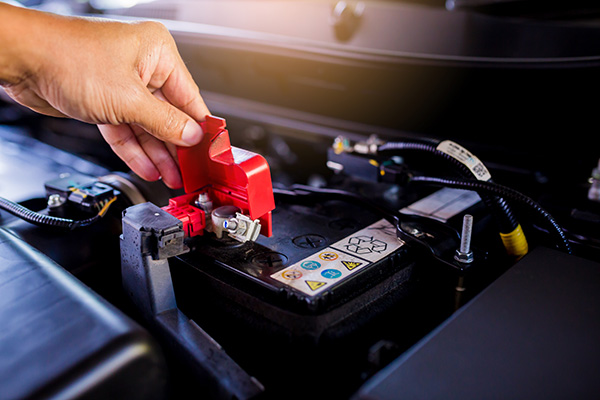
Did you just try to start your car, and nothing happened? Or maybe the lights flicker when you’re driving, or you notice your car struggling to start. Is it the battery? The alternator? Figuring out which one is causing the issue can save you from unnecessary expenses or, worse, getting stranded somewhere. Diagnosing whether the problem lies with your car's battery or alternator doesn't have to be complicated. With a bit of knowledge, you can troubleshoot the issue yourself and determine the next steps to get back on the road.
Signs Your Battery May Be Failing
The battery provides the electrical power to start your car, and when it’s not working correctly, your car just won’t start. But how can you tell if it’s the battery that’s causing the problem? Here are some common signs:
- Car Won’t Start: This is often the most obvious sign. You turn the key, and either nothing happens or the engine cranks very slowly. If it starts after getting a jump, it’s a clear sign the battery is likely at fault.
- Dim Headlights or Interior Lights: If your car's lights are dimmer than usual when you start the car or as you drive, the battery might not be holding a charge.
- Battery Warning Light: On your dashboard, you may notice a battery warning light. This could be an indication that the battery isn't charging properly.
- Corroded Battery Terminals: If you pop the hood and see white or blue powder around the battery terminals, this is corrosion. It can affect the battery’s performance, and cleaning it might improve the connection.
What Does the Alternator Do?
Before diving into the symptoms of alternator issues, it helps to understand what the alternator does. The alternator charges the battery while the engine is running, ensuring it stays charged and ready to start the car again later. It also powers various electrical components while you drive, from the headlights to the radio.
If your car’s alternator is failing, it won’t charge the battery effectively, leading to a drained battery over time—even if the battery itself is in perfect condition.
Signs of an Alternator Problem
So, how do you know if the alternator is to blame? Here are the telltale signs:
- Dim or Flickering Lights: If you notice your headlights or dashboard lights flickering or dimming while driving, this is often a sign the alternator isn’t providing enough power.
- Strange Sounds: Sometimes, a failing alternator can make a whining or grinding noise, especially if the bearings are worn out.
- Battery Light: Similar to a bad battery, a failing alternator may trigger the battery light on your dashboard. If the light comes on while driving, it's often a sign that the alternator isn’t doing its job.
- Electrical Failures: Things like power windows, air conditioning, or even your radio acting up can be caused by a lack of power from the alternator.
How to Test Your Battery and Alternator
So, you’ve noticed some symptoms, but you’re not sure which part is failing. Here are a few simple tests you can do:
Battery Voltage Test
You can test your battery’s voltage with a multimeter. A healthy battery should read about 12.6 volts when the car is off and 13.7-14.7 volts when it’s running. If it’s significantly lower than that, the battery might need replacing.
Alternator Test
When the car is running, use a multimeter to check the voltage at the battery terminals. If the voltage is below 13.7 volts, the alternator is probably not charging the battery properly. You can also turn on as many electrical accessories as possible (like lights, radio, and AC). If the voltage drops too much under load, your alternator is likely the issue.
What If You’re Still Not Sure?
If these basic tests don’t give you a clear answer, or if you’re not comfortable performing them yourself, it’s best to have a professional take a look. A certified technician can run diagnostic tests to pinpoint whether the battery, alternator or another electrical component is causing the issue.
While replacing a battery is relatively easy and inexpensive, alternator repairs can be more complex and costlier, depending on the vehicle. Knowing what part is causing the issue can save you time and money.
I'm not sure if it’s your battery or an alternator. Let the team at Hometown Tire and Auto diagnose the issue and get you back on track. Call us today to schedule a comprehensive check-up!